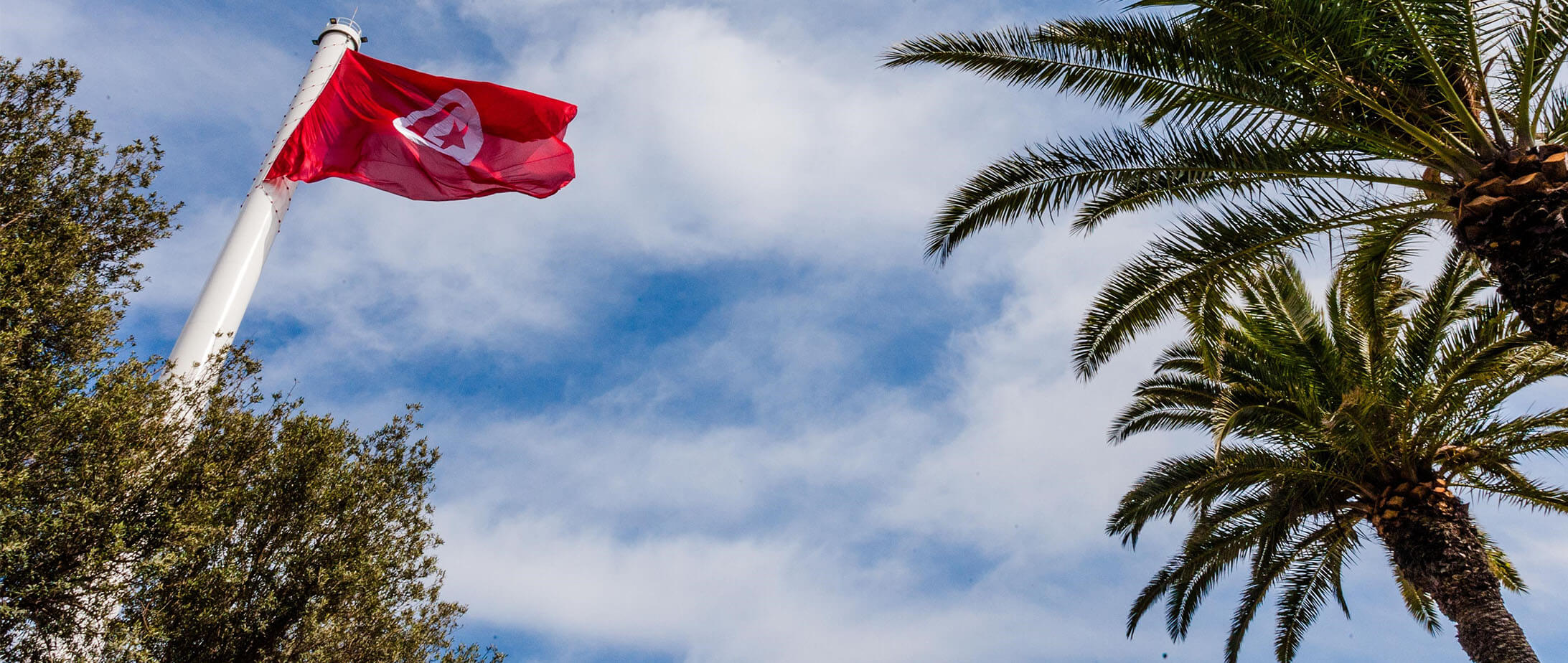I can still remember very clearly the first meeting I attended. It was during the International Day Against Homophobia, Biphobia, and Transphobia in 2014. Chouf (شوف), a new feminist LBT organization, held a secret gathering to commemorate its creation. A secret event was set up through Facebook, and only people who were invited could get in. The ATFD, another feminist organization, offered their space for the event. We were all excited, but also petrified that the police would come.
Before that day, I wasn’t aware of any LGBTQ people organizing in Tunisia. But as I started to become more involved, I discovered there was an organization called Damj (دمج), which had opened its doors in 2011 and officially registered with the government. They were actively working to change the law that makes homosexuality illegal here. Just as Chouf was getting off the ground, a group called Mawjoudin (موجودين) was being created and was registered by the end of 2014. Things haven’t been easy; the safety and security of our members have been very big issues. But today, things have improved considerably, and the community continues to grow.
At the same time, Tunisia has emerged as one of the world’s most promising democracies. In 2011, the whole nation stood up against the dictator who had been ruling for over two decades, attracting a lot of international attention. What was called the Jasmine Revolution brought hope and a determination for a better life and opportunities. Then in 2014, a new constitution came into effect, protecting and guaranteeing the rights of all citizens equally.
But, of course, the reality on the ground has been a bit different. A lot of what we have witnessed for the past six years is a whitewashing of Tunisia’s image, despite the numerous human rights violations that have occurred. As queer people, we are faced with an everyday struggle to be recognized as equal citizens. Lesbian, gay, and bi people specifically, are still persecuted under article 230 of the penal code which states that homosexuality is criminalized and punished by three years in prison.
Most people arrested under this article are men. To prove they’ve had gay sex, they are forced to undergo an invasive and humiliating anal test. National and international human rights organizations have denounced this practice, labeling it torture, but Tunisian officials have continued to use it.
This is not to say that there has not been enormous social progress. Although society has been witnessing the rise of Islamism and conservatism during the past years, the calls for hate and murder of homosexuals by some religious figures have not deterred more and more people from opening up to education and discussion about sexual orientation and gender identity.
The media has also helped address LGBTQ issues, whether on TV, radio, or in written form. Although not all platforms have been allies, the issue is being put out there; the dialogue has started and it is strengthening our community. It took some time before the terminology used on some channels changed from “perverts” and “pedophiles” to the correct Arabic terms for “gay,” “lesbian,” and “trans.” More time is still needed to build a progressive, respectful media, but we have come a long way and for this we are proud.
Despite the lack of authority over these hate speeches and the limited legal achievements, queer people of Tunisia have built a great community – a young and determined community, striving to end all injustice.
Help make sure LGBTQ+ stories are being told...
We can't rely on mainstream media to tell our stories. That's why we don't lock our articles behind a paywall. Will you support our mission with a contribution today?
Cancel anytime · Proudly LGBTQ+ owned and operated
Read More in Impact
The Latest on INTO
Subscribe to get a twice-weekly dose of queer news, updates, and insights from the INTO team.
in Your Inbox













